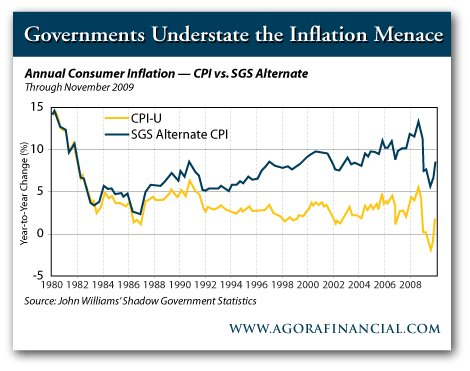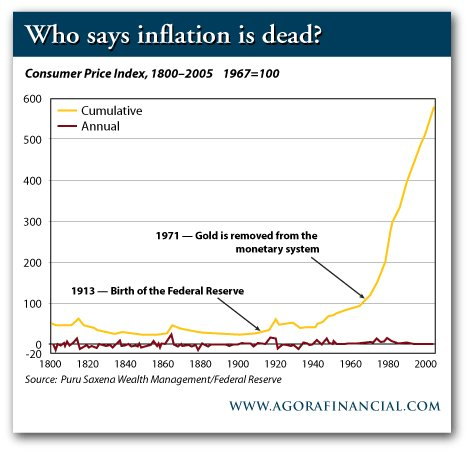Inflation is a hidden tax, an insidious crime against the public. It is the easiest way for any government to confiscate the savings of the public and for generations, wealth has been transferred in this manner.
Remember, money is supposed to be a store of value, however due to reckless central bank-sponsored inflation, it can no longer fulfill this critical role. Unfortunately, nobody questions the inexplicable loss of the purchasing power of their savings, thus, central banks get away with financial murder.
Inflation distorts the economy, it brings great harm to the public and it encourages speculation and mindless risk-taking. In fact, inflation acts as a poison for retired people since they are no longer able to earn more money in order to maintain their standard of living. So, thanks to inflation, most senior citizens are unable to enjoy the fruits of their labour.
Advertisement
Before we delve further, we want to make it absolutely clear that inflation is defined as the increase in the quantity of money and debt within an economy. And contrary to what the governments want you to believe, inflation is certainly not an increase in the general price level within an economy. Instead, an increase in the general price level within an economy is a consequence of inflation. Allow us to explain this subtle yet critical difference:
For the sake of simplicity, let us assume that America's money-supply is US$100 and this is the amount available to buy the five oranges its economy produces. Common-sense dictates that under this situation, each orange will cost US$20. Now, let us introduce a banking-cartel called the Federal Reserve, which is able to extend credit (via its debt-based fractional reserve banking system); thereby inflating the supply of money within America to US$1,000. Under this scenario, with a 10-fold increase in money available to purchase the same amount of produce, each of the five oranges will now cost a whopping US$200! An orange is still an orange; it does not change. What changes is the purchasing power of the paper money that is used to buy that orange.
Hopefully, you can see from the above-simplified example, how an inflation in the supply of money and debt causes prices to increase within an economy.
Furthermore, in its attempt to manipulate the masses, the establishment does everything in its power to suppress the official “inflation barometer”. Governments achieve this goal by shamelessly doctoring their Consumer Price Index (CPI) and Producer Price Index (PPI) calculations via various seasonal and hedonistic adjustments. The chart below highlights the discrepancy between the CPI-U published by America's Bureau of Labor Statistics and the SGS Alternate CPI, which is calculated by Shadow Government Statistics using the old methodology. As you can see, over the past 20 years, prices have been rising much faster than the officials would have you believe.

Let there be no doubt, inflation is a total disaster and our world will be a better place without this reckless money-creation. Contrary to official dogma, our world experienced tremendous progress during the 19th century, and there was no inflation during that period. The chart below shows the changes in America's Consumer Price Index (CPI) over the past two centuries. As you will observe, the CPI fell for most of the 19th century as the purchasing power of the American currency rose. However, since the formation of the Federal Reserve in 1913, the CPI has exploded causing the purchasing power of the US dollar to spiral downwards.
Advertisement

Given the fiat-based monetary system and banks' vested interest in expanding credit, we have no doubt that most nations will experience very high inflation over the coming decade. Accordingly, we suggest that long-term investors protect their purchasing power by allocating capital to precious metals, commodity producers and fast-growing businesses in the developing world.
Discuss in our Forums
See what other readers are saying about this article!
Click here to read & post comments.
13 posts so far.